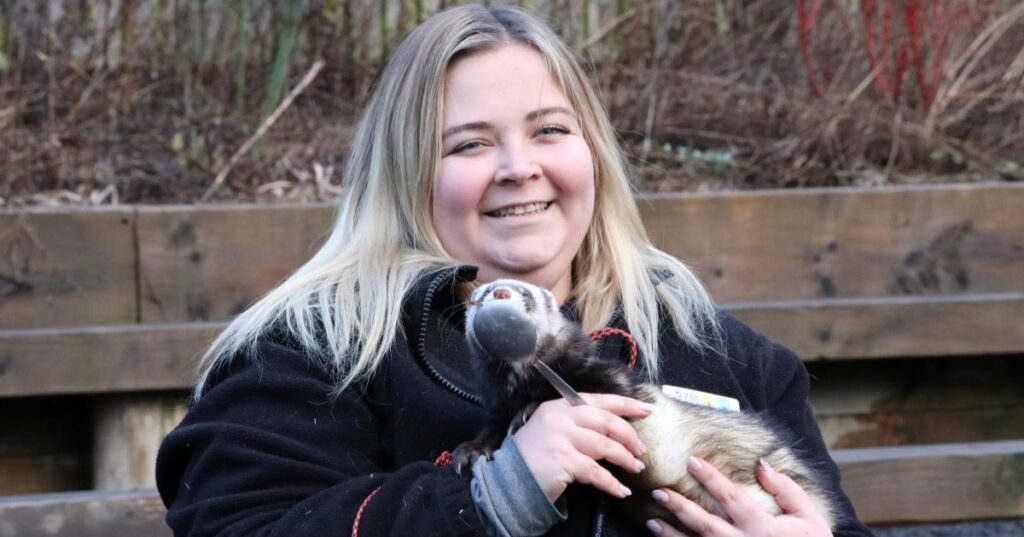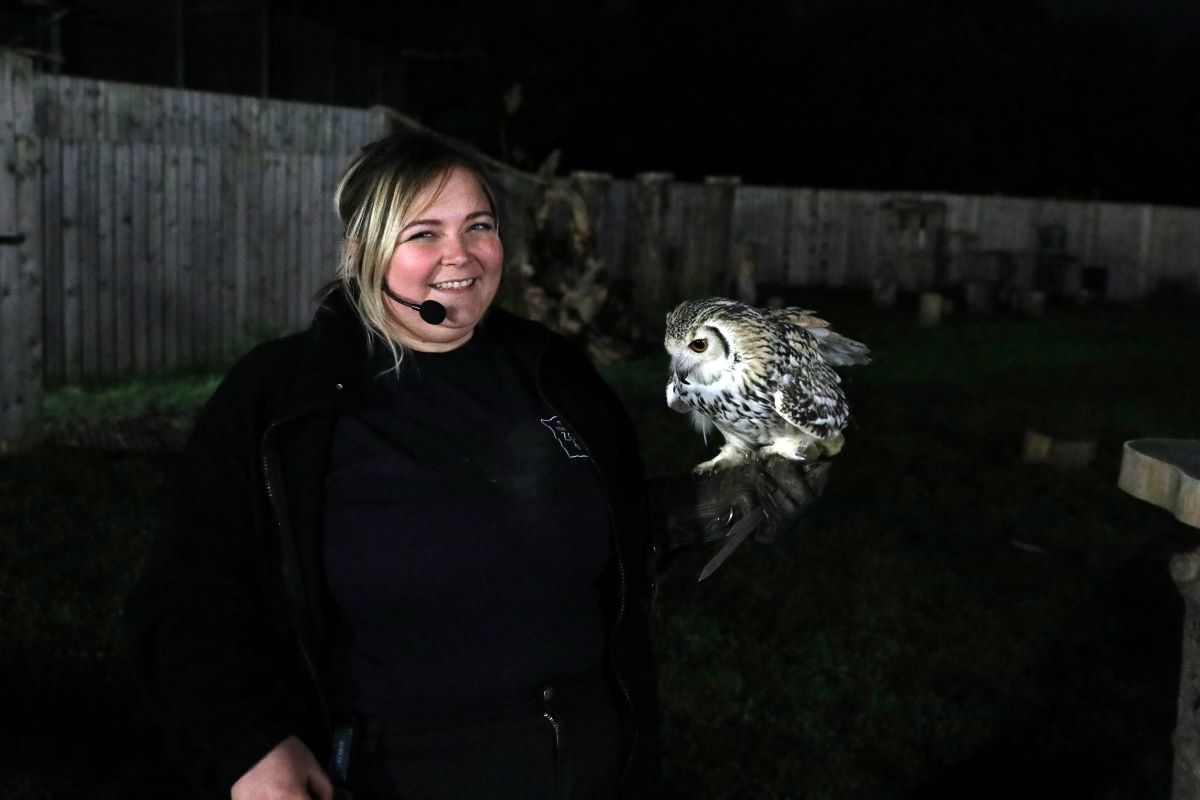
Life with Edinburgh Zoo: ‘I grew up watching Animal Planet. Sometimes I wish I was Doctor Dolittle’
Zookeeper at The Royal Zoological Society of Scotland’s (RZSS) Edinburgh Zoo, Natalie Booth, on growing up watching Animal Planet and her love of training animals.
I always knew I wanted to work with animals. I watched a lot of Animal Planet with my grandad when I was young. I think I settled on wanting to be a zookeeper when I was around 11, I even planned my own zoo. I was lucky enough to live in Florida in my late teens with my family. I found Santa Fe College Teaching Zoo which is the only accredited teaching zoo in the US. I got my Zoo Animal Technology degree and from there started working as a keeper.
A typical day starts at 8am. I’ll arrive at work a little early, grab my keys, change my boots and set off. First thing on the agenda is saying good morning to all the animals.
I’m part of our animal experiences team so I work with lots of animals – sloths, armadillos, meerkats, birds of prey, parrots, goats, ferrets, kangaroos, wallabies, and a unique animal called a cuscus (give them a google – he’s very cute).
‘Things don’t always go to plan’
Running our Animal Antics displays is such a huge team effort. It takes at least three keepers to run a display. Prepping for the show usually involves getting all the animals’ food ready and turning on any telemetry (tracking) for the birds that are free flying. Our birds fly low in the crowd and sometimes land next to you and our goats get up on the benches and show off their climbing skills. Of course, things don’t always go to plan, sometimes our animals take themselves home early or our birds may fly a little further than we would like but we always know the risks and it’s why we use telemetry.
Our turkey vulture Mabli gets his enclosure cleaned in the morning. He’s usually a good boy and goes outside while we clean his indoor area. Mabli usually flies in the morning shows so about five minutes before show time I get him ready. I make sure he’s cast (like an owl, they’ll bring up material they can’t digest like fur) and then ask him to jump onto scales to check his weight. Then we ask him to turn around and present his tail so we can attach our telemetry to him. Every time I ask Mabli for one of these behaviours in his routine he gets a food reward. Once his routine is over he comes back to his box, we take him home unclip his telemetry, and then leave him with some tasty food.
When it comes to cleaning, most of the animals need to be shifted to their outdoor space when their enclosures are cleaned, but some, like our sloths, we clean around. They are usually asleep while we are cleaning but we have to be aware of them at all times. We hose daily to take care of all the plants, check the stability of branches and ropes the sloths use for climbing, and give the floor a rake for any fallen leaves or unwanted food from the day before. We check for sloth poo, but we don’t find it every day because sloths typically only poo once every three-five days – in the wild they can store it for up to 14 day.

Natalie trained as a zookeeper in Florida.
‘I love training our animals. It’s a great feeling to be passionate about your work’
The sloths get fed around 10am and 3pm using gloves and tongs to keep fingers away from their very sharp teeth. We make their diets fresh every day and they consist of lots of veggies. Our female sloth, Feira loves red pepper and sweet corn. Our male, Nico, is a big fan of sweet potatoes. When we are feeding them it’s a good opportunity for us to have a good look at them and give them a visual once-over. To help with this we’ve trained our sloths to target. They have learned that if they touch their nose to a ball on the end of a stick (a target stick) then they get a piece of their food. It’s a great way for us to ask them to get up out of their baskets so we can see their bodies as we wouldn’t normally see them move a lot during the day because they are nocturnal.
I love training our animals. It’s a great feeling to be passionate about your work and I never take that for granted. I adore working with our blue and gold macaw, Kola. She is such an intelligent bird with a unique personality. When you work alongside her you really have to watch her body language and gain her trust slowly. She makes you put in a lot of effort but once that trust is gained it’s so rewarding.
It’s difficult when the animals don’t understand what you are asking of them. Sometimes I wish I was Doctor Dolittle or Eliza Thornberry and could communicate with animals. It can be frustrating when an animal is rejecting medication that will make it feel better or refusing to come inside even though it’ll be freezing temperatures overnight and you just wish they could understand why you need them to do these things. Of course, the most difficult part of being a keeper is when you lose an animal. We dedicate our careers to caring for animals and it’s a hard day when one passes away. We see our animals most days so we build relationships with them and they become a big part of our lives, and us in theirs, so it’s tough when one passes away.
Depending on the time of year I finish between 4pm and 6pm. When I go home the first thing I do is give my cat, Harper, a cuddle and have a cup of tea with my partner. I love cooking so I’ll try a new recipe or if I’ve seen a good idea online I’ll test myself and try to replicate it. Ultimate relaxation is putting on The Office (US) while on the sofa under a cosy blanket that’ll entice the cat to sit with me.
Read more from the Life With series here.
Subscribe to read the latest issue of Scottish Field.
TAGS

